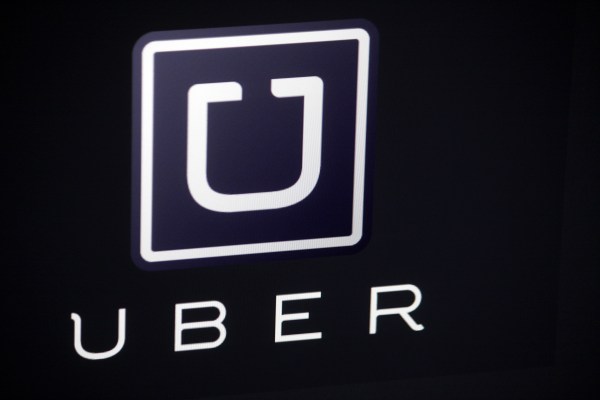Despite raising a warchest of some $8 billion, on-demand ride sharing platform Uber is retrenching its operations in Germany — pulling out of three cities (Frankfurt, Hamburg and Düsseldorf), leaving active operations in just Berlin and Munich.
The move follows a Frankfurt regional court ban on Uber using unlicensed drivers, issued back in March. The court ruled that each violation of the ban would be subject to a €250,000 ($270,000) fine. The legal challenge was driven by German taxi operator group Taxi Deutschland targeting the lower cost UberPop service.
At the time Uber had said it would continue operations in the cities, offering its limousine service and licensed taxi drivers, but has now decided it’s not able to run a reliable service with only those fall-back options because it can’t get enough drivers.
“For many prospective Uber partners the process of registering an independent rental car enterprise has proved as too costly and time consuming,” Uber said in a statement picked up by Reuters on Friday.
A spokeswoman for Taxi Deutschland claims Uber had in fact only managed to sign up “around 10” drivers in Frankfurt, vs the 4,000 it has in the city.
Well regulated markets with consumer protection are very difficult for Uber to conquer.
In an email sent to Uber drivers in Hamburg the company writes it has found the “local conditions difficult to build a reliable switching platform for car rental companies”, saying it has therefore been unable to guarantee both high demand for its service and enough drivers to supply passengers wanting to use Uber in the city.
It goes on to say it has decided to “pause Uber in Hamburg temporarily”, as of November 9, adding that is working “with politicians and local authorities” to try to find a long term solution for its business in Germany.
However the Taxi Deutschland spokeswoman points out that Uber’s business model in Germany makes it an unattractive option for licensed radio taxi drivers, given Uber takes a 20 per cent fee from drivers — vs the around 5 per cent (on average) that radio taxi companies charge licensed drivers (levied as a €150 monthly flat fee).
“Uber is way more expensive, they’ve got hardly any customers and they only operate with their app. And this is why [Uber’s business model] couldn’t work,” she tells TechCrunch, noting that there are some 255,000 licensed taxi drivers in Germany, adding: “So the regulations can’t be too complicated!”
“Well regulated markets with consumer protection are very difficult for Uber to conquer,” she adds. “Any society which has consumer protection in place will be an extremely difficult market for Uber.”
Although Uber is continuing to operate in Berlin, the UberPop service has also been banned there — with a Berlin court upholding a ban on the service back in April on passenger safety grounds. So in Berlin Uber runs a service that uses regular licensed taxis to fulfill rides hailed via its app.
In a statement provided to TechCrunch, Uber’s Christian Freese, GM for Germany, added: “We’ve found the requirements, even for licensed services, to be very complex. Uber is increasingly popular in Munich and Berlin so we have decided to focus our efforts there and suspend our operations in Frankfurt, Düsseldorf and Hamburg.
“We know this will be disappointing for riders and our partner drivers in those three cities, so we are looking at how we can support them. Uber remains committed to expanding its services in Germany, and will therefore continue its engagement and dialogue with politicians and regulators.”
Issuing its own statement yesterday, Taxi Deutschland’s chairman Dieter Schlenker said: “The German society values consumer protection, safety and training. Uber interprets this as ‘difficult market conditions’. But as a matter of fact, these conditions apply to every company in Germany, radio taxis and taxi drivers operate accordingly. Uber still has hardly any drivers. The reason is obvious: Taxi drivers are working more economical and efficient when driving for radio taxis. They get more passengers through radio taxi companies and better conditions. Traditional radio taxi companies are organised in the form of cooperatives. Thus, the economic support of the many self employed taxi companies is their primary concern, contrary to Uber and other internet taxi platforms whose purpose is to be profitable.”
“Building a legal taxi service is no Silicon Valley business model that can be instated in a rush. And the illegal business model Uberpop — which compromises safety and consumer protection — is already banned in Germany,” he added.
Uber’s UberPop service has been banned in multiple other locations in Europe, including France, Belgium, Italy, Spain and the Netherlands (although Uber has continued to operate the service in some markets, flouting court rulings). Meanwhile in the U.K., London’s transport regulatory body is currently consulting on proposed changes to regulations governing private hire vehicles which could result in strict new limits on how Uber can operate in the city next year.
Returning to the German market, how come Uber can still operate its business model in Berlin when its fee is so uncompetitive vs radio taxi firms? The Taxi Deutschland spokeswoman points out that the city does not have a limit on the number of licensed taxis that can operate, supporting additional drivers and more competition vs other German cities which do have limits.
She attributes Uber’s continued presence in Munich as the result of a higher proportion of international customers in the city driving more demand for its app.
This story was updated with comments from Taxi Deutschland
